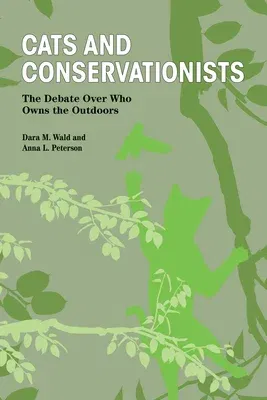Cats and Conservationists is the first multidisciplinary analysis of
the heated debate about free-roaming cats. The debate pits
conservationists against cat lovers, who disagree both on the ecological
damage caused by the cats and the best way to manage them. An
impassioned and spirited conflict, it also sheds light on larger
questions about how we interpret science, incorporate diverse
perspectives, and balance competing values in order to encourage
constructive dialogue on contentious social and environmental issues.
On one side of the cat debate stand many environmentalists, especially
birders and conservation organizations, who believe that outdoor cats
seriously threaten native wildlife. On the other side are many animal
welfare advocates, who believe that outdoor cats generally do not pose a
major ecological threat and that it is possible for cats and wildlife to
coexist. They believe that it is possible, mainly through
trap-neuter-return projects (TNR), to keep free-roaming cat populations
in check without killing large numbers of cats.
Careful analysis suggests that there remain important questions about
the science on both cat predation and TNR effectiveness. Yet both sides
of the conflict insist that the evidence is clear-cut. This false
certainty contributes to conflict between conservationists and cat
lovers, and obscures common goals that could generate constructive
discussions and collaborative efforts among scientists, policymakers,
conservationists, and animal welfare advocates. Cats and
Conservationists aims to facilitate such collaboration in order to
manage outdoor cats and minimize the damage they cause. It also offers
models for constructive debates about the public role of science in
other polarized public conflicts over science and environmental topics.


